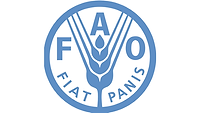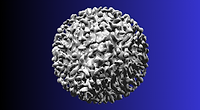FAO, WHO Updating Codex Guidance on Viruses in Foods; Call for Experts, Data

The Food and Agriculture Organization of the United Nations (FAO) and the World Health Organization (WHO) are calling for experts to contribute to the future work of the Joint FAO/WHO Expert Meetings on Microbial Risk Assessment (JEMRA) in the area of human enteric viruses in foods. FAO and WHO are also asking governments, industry, academia, consumer groups, laboratories, and other interested stakeholders to submit any available data and information to support JEMRA’s work.
In light of emerging issues associated with foodborne viruses and recent scientific developments, the Codex Committee on Food Hygiene (CCFH) quested that JEMRA provide scientific advice to inform the review of the Codex Guidelines on the Application of General Principles of Food Hygiene to The Control of Viruses in Food. The primary purpose of the guidelines is to provide direction on how to prevent or minimize the presence of human enteric viruses in foods, specifically, hepatitis A and norovirus.
The guide is applicable to all foods, with a focus on ready-to-eat (RTE) foods, from primary production through consumption. It also contains an annex on the Control of hepatitis A and norovirus in bivalve mollusks (Annex I) and an annex on the hepatitis A and norovirus in fresh produce (Annex II). The annexes provide additional recommendations for control of the viruses in specific commodities.
Areas of the Codex guidance requiring updates, which will be supported by the present call of experts and evidence, are:
- Expansion of the scope to address viruses other than hepatitis A and norovirus, as well as emerging vehicles of foodborne illnesses such as frozen fruits
- Revision of interventions in the food chain focusing on process-specific control systems, surface disinfection, and hand disinfection and food handler hygiene according to available evidence
- Possible inclusion of additional information on testing of foods for foodborne viruses, taking into account technical advancements in viral detection in specific commodities and in assessing potential infectivity of viruses
- Consideration of new scientific findings to control hepatitis A and norovirus in bivalve mollusks and in fresh produce made available since the original publication of the Codex guidance on controlling viruses in foods, including indicators to monitor seawater quality of mollusks growing areas and risk assessment models.
To support the update of the guidance, CCFH requested JEMRA provide scientific advice on the following areas, giving priority to items 1, 3, and 4:
- An up-to-date review of foodborne viruses and relevant food commodities of highest public health concern
- A review of the scientific evidence on prevention and intervention measures and the efficacy of interventions in the food continuum
- A review of the analytical methods for relevant enteric viruses in food commodities
- A review of scientific evidence on the potential utility of viral indicators or other indicators of contamination
- A review of various risk assessment models, with a view towards constructing more applicable models for widespread use among member countries, including a simplified risk calculator.
FAO and WHO are seeking data on the control of viruses in food that can inform JEMRA’s work. Specifically, scientific advice is needed to provide the following:
- The global burden of disease attribution based on epidemiological data
- Hazard identification and characterization of viruses, including information on genetic profiles and virulence factors and mechanisms, the dose-response, and the susceptibility of the host, especially within vulnerable populations
- Current monitoring, including the status of current analytical methods (available and validated for regulatory purposes), for monitoring viruses in food and the production environment as a basis for management and control
- The development of the full farm-to-table risk assessment for viruses in foods.
Additionally, FAO and WHO are currently in the process of identifying experts to participate in future work in the area of microbiological hazards associated with human enteric viruses in foods. The review of applicants will begin on April 3, 2023 and will continue until suitable candidates are identified.
Interested applicants who wish to participate in JEMRA’s work should complete the online application and submit their curriculum vitae (CV) by email to FAO and WHO JEMRA Secretariats Kang Zhou (jemra@fao.org) and Akio Hasegawa (jemra@who.int). Those who are interested in answering the call for data should submit all relevant information about human enteric viruses in foods by August 31, 2023 to the aforementioned FAO and WHO JEMRA Secretariats.
Looking for a reprint of this article?
From high-res PDFs to custom plaques, order your copy today!





